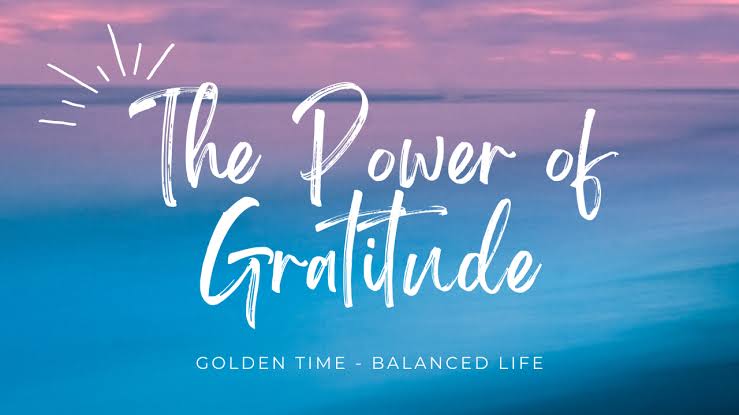Gratitude is more than saying “thank you.” It is a strong way of thinking and a daily habit that can change how we see life. In a world that asks us to do, be, and want more, gratitude gives us a moment to stop, feel calm, and stay grounded. By 2025, studies in positive psychology and brain science have shown how gratitude helps our mind, feelings, and body.
Whether you’re navigating personal challenges, striving for career success, or seeking deeper relationships, cultivating gratitude can help shift your perspective and unlock a more fulfilling life.
Emotional and Mental Health Benefits
One of the most well-documented benefits of practicing gratitude is its profound effect on emotional and mental health. People who regularly express gratitude experience:
- Lower levels of stress and anxiety
- Greater emotional resilience in the face of adversity
- Improved mood and optimism
- Reduced symptoms of depression
Gratitude helps train the brain to focus on what is working instead of constantly scanning for problems. This mental reprogramming leads to greater emotional balance and less time spent ruminating on negative thoughts.
In therapy and mental health practices across Canada and beyond, gratitude journaling has become a simple yet effective tool for clients struggling with anxiety, burnout, or low self-worth.
Physical Health Improvements
Surprisingly, the benefits of gratitude extend beyond the mind. People who adopt a grateful mindset often enjoy better physical health, including:
- Improved sleep quality and duration
- Lower blood pressure and inflammation
- Stronger immune response
- Fewer aches, pains, and fatigue
This connection arises because grateful individuals tend to adopt healthier lifestyles, such as exercising more, eating better, and engaging in regular self-care. In addition, lower stress levels brought about by gratitude can reduce the body’s production of cortisol, the stress hormone.
Stronger and More Meaningful Relationships
Gratitude is one of the cornerstones of strong personal and professional relationships. Expressing appreciation helps:
- Strengthen bonds between partners, family, and friends
- Increase empathy and understanding
- Decrease resentment and conflict
- Promote mutual respect and support
When you show someone genuine appreciation, it affirms their value in your life. Over time, this habit of acknowledgment can build a foundation of trust, emotional safety, and shared joy.
Even in professional settings, a simple “thank you” to colleagues can boost morale, collaboration, and workplace satisfaction.
Increased Self-Awareness and Mindfulness
Practicing gratitude helps develop self-awareness and brings us back to the present moment. Instead of constantly chasing what’s next, we learn to notice and savor what we already have.
This mindfulness creates:
- A sense of contentment in the here and now
- Greater awareness of your values and priorities
- A calmer, more focused mindset
Being grateful doesn’t mean ignoring problems or pretending everything is perfect. It means choosing to see value and beauty even in imperfection—and that shift in perception can make life more meaningful.
Simple Ways to Practice Gratitude Daily
The beauty of gratitude lies in its simplicity. You don’t need anything expensive or elaborate to begin. Some practical ways to cultivate gratitude include:
- Gratitude journaling – Write down three things you’re thankful for each day
- Thank-you notes – Handwritten or digital, these can brighten someone’s day
- Verbal appreciation – Make it a habit to express gratitude aloud
- Mindful moments – Pause during your day to reflect on what’s going well
- Gratitude jar – Add one note daily and read them at the end of each month or year
By weaving these small rituals into your routine, you can make gratitude a natural and rewarding part of your lifestyle.
Gratitude During Difficult Times
It’s easy to feel grateful when life is going smoothly—but true gratitude shines brightest during hard times. When faced with illness, loss, or setbacks, choosing to focus on what remains—love, support, growth—can foster resilience and healing.
In 2025, therapists and coaches increasingly use gratitude practices to help clients manage grief, unemployment, chronic illness, and relationship struggles. It’s not about denying pain but about finding light within it.
Reflecting on past challenges and what they taught you can also create long-term emotional strength and deeper appreciation for life’s simple blessings.
Gratitude in the Digital Age
Modern technology has both challenged and enhanced how we practice gratitude. While social media often fuels comparison and dissatisfaction, it can also serve as a platform for connection, encouragement, and shared positivity.
Some tech-based gratitude practices include:
- Using gratitude journaling apps
- Sharing gratitude posts or stories online
- Participating in gratitude challenges with friends or communities
- Turning digital distractions into mindful check-ins
The key is to use technology intentionally—to amplify gratitude rather than distract from it.
Teaching Gratitude to Children and Teens
Gratitude isn’t just for adults. Children and adolescents who learn gratitude from a young age tend to develop stronger social skills, better emotional regulation, and more empathy.
Ways to nurture gratitude in younger generations:
- Model thankfulness in daily life
- Encourage kids to say “thank you” and mean it
- Make gratitude part of bedtime routines
- Help teens create a gratitude journal or photo diary
- Volunteer together as a family to build appreciation for others
Instilling gratitude in young people equips them with lifelong tools for happiness and resilience.
Conclusion
Gratitude is one of the most powerful yet accessible tools for improving life on every level—mental, emotional, physical, and relational. In a world that often emphasizes what we lack, gratitude re-centers us on what we already have and reminds us of the richness in our everyday experiences.
By making gratitude a consistent practice—not just a reaction—you begin to notice more joy, build stronger connections, and approach life with a deeper sense of peace and purpose. Whether through journaling, small acts of kindness, or mindful reflection, choosing gratitude is choosing a life rooted in abundance rather than scarcity.



